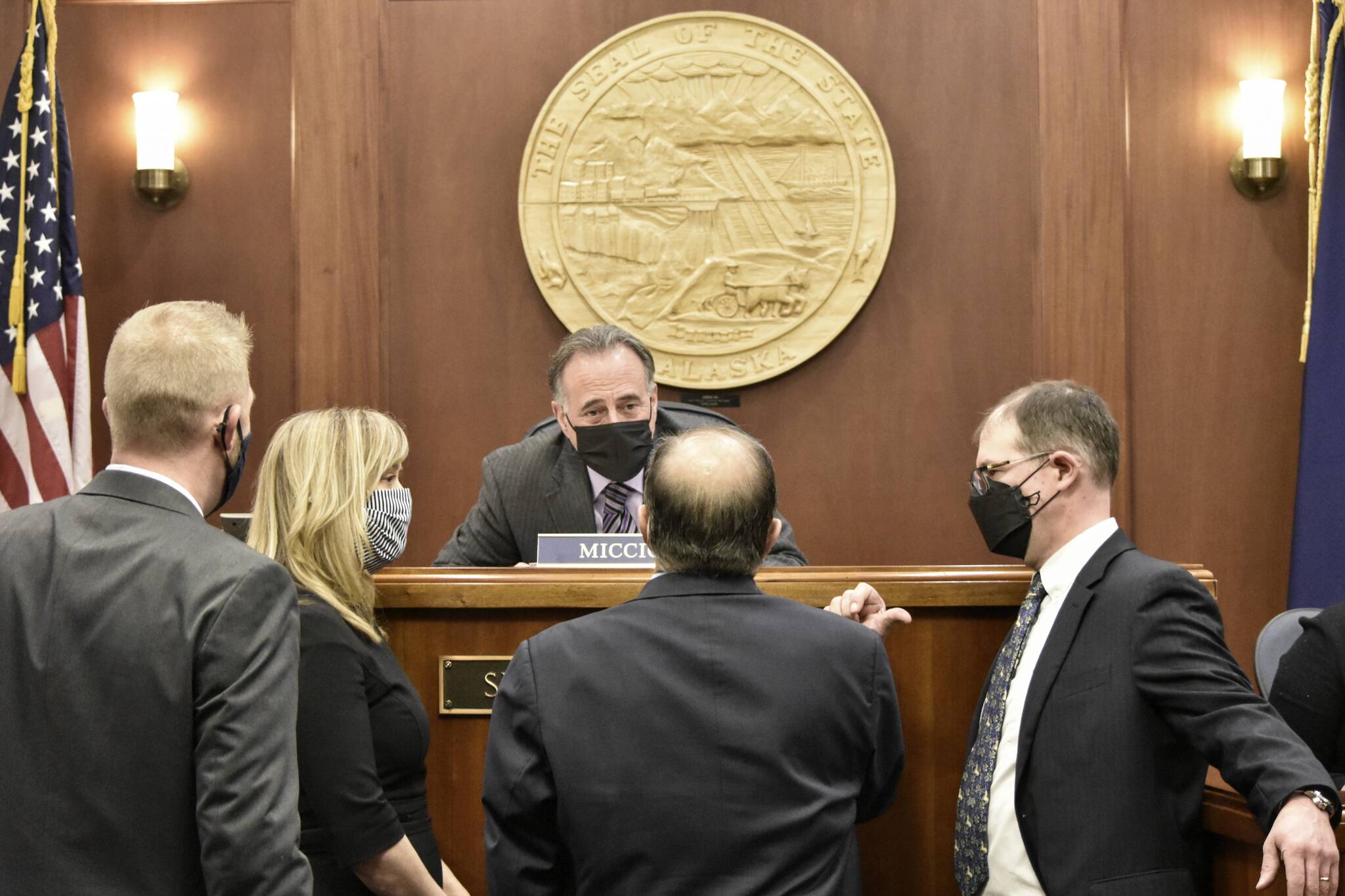A bill overhauling Alaska’s alcohol laws passed out of the Senate on Tuesday, heading to the House of Representatives where further amendments are expected.
Senate Bill 9 is the result of nine years of effort by Sen. Peter Micciche, R-Soldotna, the current Senate President. According to the bill’s advocates, SB 9 is an attempt to modernize the state’s regulations in a way that balances expansion of the alcohol industry while safeguarding protections for public health and substance misuse.
Because the Senate President cannot speak to legislation on the floor, Sen. Gary Stevens, R-Kodiak, carried the bill telling his colleagues SB 9 was a simple reorganizing and reordering of the state’s alcohol laws.
“This legislation is not a special interest bill, it’s a long effort from many stakeholders,” Stevens said. “This bill modernizes (state alcohol laws) without harming existing businesses.”
The bill creates new license types for businesses that sell alcohol such as breweries and wineries and extends the activities those businesses can engage in. Tasting rooms at alcohol manufacturing business could, if the bill passes, stay open two hours later, closing at 10 p.m. and can hold classes or fundraising events.
The bill limits manufacturer licenses to one per 12,000 people but gives municipalities the option to petition the Alcohol Beverage Control Board for additional licenses.
The bill also allows for permits to be issued, allowing catering companies to serve alcohol at a certain time and place.
Sen. Jesse Kiehl, D-Juneau, offered an amendment that would lower that threshold to 7,500 people. Juneau and other larger municipalities would already be over the limit set forth in the bill were it to pass, Kiehl said on the floor. Juneau has a population of just over 32,000, according to state data, but is home to multiple breweries and a distillery.
“To go further than the status quo, to be more restrictive to the existing law, doesn’t make sense,” Kiehl said.
Kiehl withdrew his amendment, with a request that his amendment be taken up in the House.
Sen. Donny Olson, D-Golovin, also objected to the population requirements, saying that within his districts there weren’t any villages with more than 4,000 people.
Olson said he wanted to make sure, “the next person out there that has a good idea is not inhibited by the regulation that you have 12,000 people.”
All 18 senators present Tuesday voted in favor of the bill. Sens. Mike Shower, R-Wasilla, and Robert Myers, R-North Pole, were excused.
Speaking with reporters Friday, Micciche said the bill brought Alaska’s alcohol laws more in line with how the industry operates today.
Organizations that submitted letters of support for the bill include Alaska Cabaret, Hotel, Restaurant and Retailers Association; Brewers Guild of Alaska; Alaska Mental Health Trust Authority and the Alaska Peace Officers Association.
“We know that (the bill) is designed to protect Alaskans from the adverse effects of alcohol,” Micciche said. It’s an extremely important segment of our economy and it continues to grow with tourism.”
The Senate President said over the years he’s worked with representatives from the alcohol industry, public safety and substance abuse and recovery experts to draft the bill.
“It’s not a special interest bill,” Micciche said. “It’s an everyone interest bill.”
Contact reporter Peter Segall at psegall@juneauempire.com. Follow him on Twitter at @SegallJnuEmpire.


